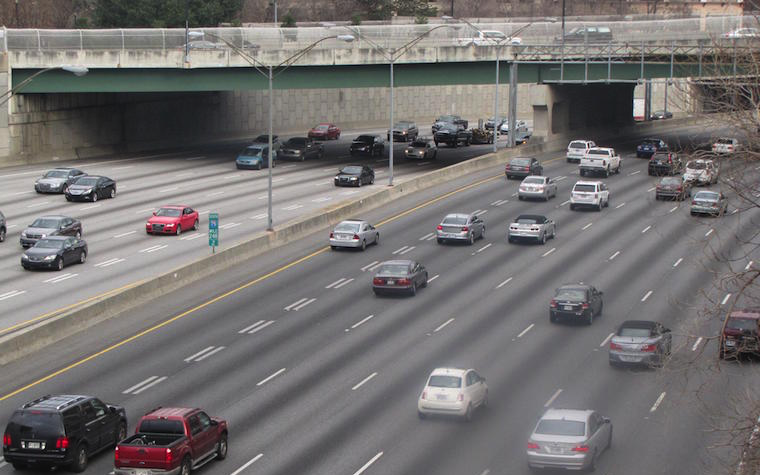U.S. governors and mayors warned lawmakers on Tuesday that allowing federal Highway Trust Fund dollars to run dry would have a crippling effect on their ability to pay for critical infrastructure projects.
Current highway funding legislation expires on May 31, and in the face of uncertainty surrounding the law’s reauthorization, a number of states and local governments are postponing or cancelling projects that would rebuild deteriorating roads, bridges and transit systems.
“If we truly believe that a strong national transportation system is essential to creating jobs and maintaining a strong national economy, we need a law that reflects that belief,” said North Carolina Gov. Pat McCrory, who testified before the House of Representatives Transportation and Infrastructure Committee on behalf of the National Governors Association.
Over the last six years, Congress has funded the nation’s transportation system with 32 short-term measures, including the $10.7 billion measure for fiscal year 2014 that will expire in May.
The federal surface transportation program is mainly funded with a federal tax on gasoline and diesel sales, but analysts say those tax dollars are no longer sufficient as fuel use drops. As a result, more than a dozen states have considered raising their gas taxes this year to pay for infrastructure projects.
McCrory urged Congress to avoid more short-term fixes to the federal transportation fund and pass a long-term bill.
North Carolina, which McCrory said has the second largest highway system in the country, has a transportation network that is at or beyond its capacity in the fastest growing areas of the state. Using current funds available, North Carolina will be able to pay for about 18 percent of transportation projects submitted by localities over the next 10 years, McCrory said. Federal dollars make up almost 28 percent of North Carolina’s total transportation budget.
Salt Lake City Mayor Ralph Becker, said, “Unfortunately, uncertainty at the federal level is driving up the cost of financing and stalling projects. And many states are compounding the problem by limiting the authority of municipal governments to raise new revenue through taxation.”
The greatest demand for transportation improvements in Salt Lake City comes from transit, biking and pedestrian improvements, said Becker, who also heads the National League of Cities. Transit agencies have reported growth in ridership in 12 of the last 15 years. There are now 99 transit expansion projects and 23 major system renovations underway across the country, he said.
The fate of thousands of other road and bridge projects across the nation also are at stake.
“I expect the number of cancelled or delayed projects will grow very, very quickly over the coming weeks if we don’t have a short-term bill,” said Rep. Peter DeFazio, an Oregon Democrat who serves as ranking member of the transportation and infrastructure committee, noting, however, the objective is to agree on a six-year funding bill.
“But just to get to the end of this year, with current anemic levels of spending, it would require slightly less than $10 billion dollars” from the federal government, he said, or else a sharp drop in construction activity and lost jobs will ensue.
States and cities push for federal transportation dollars as tank runs near empty




 Alerts Sign-up
Alerts Sign-up